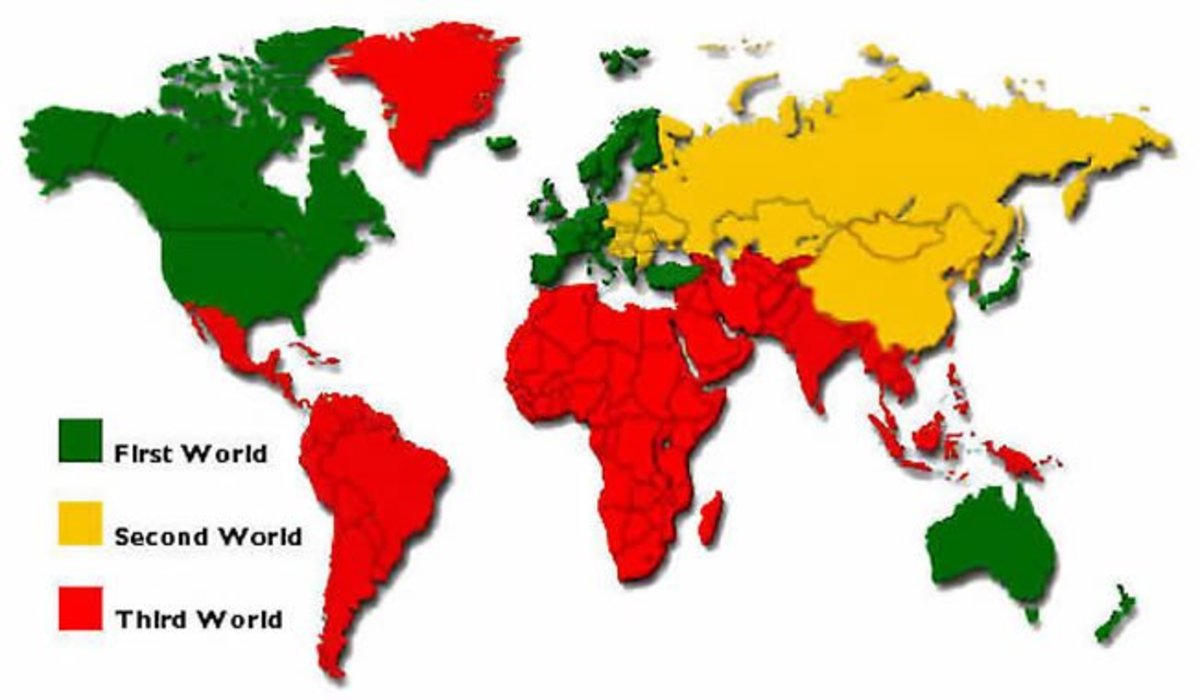How to Spot Bad or Fake Information
There is a reason I posted the video above and it is not as an advertisement. It is to tell you that not everything you read on the internet is true. Shocking, I know. But did you know not everything you read in the newspaper or hear people tell you is true either? I remember sitting in church on a Christmas Eve, listening to the pastor preach. I don't remember what the sermon was about anymore, but I do remember that when trying to make a point, the pastor said there was no gravity outside of Earth. I looked at my sister, a flagrant atheist and fellow scientist, and together we burst out laughing. If there was no gravity outside of Earth, how does the preacher believe the Earth rotates around the Sun without falling through space? Magic? And yet we were the only two people in the audience who seemed to know just how wrong that statement was.
I'm not trying to pick on religion. There are plenty of other people that talk about things they know absolutely nothing about, like Fox News who blatantly admitted that they make stuff up. (Addicting Info) And I've stumbled across quite a few blogs out there on the internet that made me want to facepalm. I am certainly not trying to step on any toes, nor am I trying to brag. All I am trying to say is you can't guarantee 100% accuracy of everything on the internet or even in the news, and there is definitely bad or fake information out there trying to pass off as being real. When I mean bad/wrong or fake, I mean articles that have misinformation or stuff that was made up, or that make bold statements without any proof or just cite a lot of facts that may be true, but in the end you've really learned nothing from reading the article. There is a lot of information out there that you think you may be able to trust, but you really can't. So I am here today to give you pointers to help you figure out how to spot untrustworthy information and in the process, how to write a good article yourself. Though my expertise is primarily in science, this will work for all types of information.

1: Credentials of Author
This is very important: does the author have credentials? For example, I write articles about renewable technology and climate change. If you go to my profile, it states that I have a Bachelor's degree in Chemistry and a Master's degree in Material Science and Engineering. Those are my credentials. I spent almost 6 years getting those degrees, so I hope I know what I'm talking about. Another example would be the Mythbusters. In the opening credits of the show it exclaims that Adam and Jamie have more than 30 years combined experience in special effects. That is their credentials.
When deciding whether or not to trust information on a website, check the author's profile or look around in other places to see what qualifies the writer to talk about the subject. If the author has a degree in the subject or relevant work experience, the information is most likely trustworthy. If you can't find any credentials, it likely means they don't have any.
2: References
Not every author writes about subjects they went to school for or that they have relevant work experience for. That's okay, they don't have to, but if an author is writing an article about a subject in which they are unfamiliar with, there should be references. For example, let's use a hypothetical article about the mating habits of a tiger. If the author is not a veterinarian or animal enthusiast, it is unlikely they knew all the information they are presenting off the top of their head. They had to get their information from somewhere and it should be properly cited with a hyperlink, footnote or something. If you were writing a paper for a class, you would cite your references. If a scientist was writing a paper for a journal, they would cite their references. It's not any different for an article on the internet. Be careful, though, and check the references to see if the information there is trustworthy as well.
If there are no credentials and no sources cited, chances are the information you are reading isn't credible. However, here's a further list of 3rd strikes that tell you to hit the back button and find better sources.
3: Does the Title and Summary of the Article Match the Content
It seems straight forward, but if the title of the article does not match the content, that is a good sign the author did not spend enough time either writing the article or researching it.
Why do I say this? It is basic writing skills to have a title and summary that matches the content. Otherwise it's like picking up a book called "How to train your German Shepherd" and the summary says 'this book will teach you the tricks you need to know to successfully train your German shepherd dog and teach them to be a well behaved companion.' However, you read the whole book and find out there was absolutely nothing at all in the book about training dogs and you've pretty much just wasted your time reading a book that just talks about how awesome dogs are instead. You'd be pretty mad at being mislead, wouldn't you? If the summary and title doesn't match the content, then my first assumption would be that the author really didn't know what they were talking about and that is why it doesn't match.
I'll give you an example of an article I came across once on the internet titled something along the lines of how solar cells worked and the summary indicated something similar. After skimming through the article, however, there was absolutely nothing in the article that talked about how solar cells worked. It spoke, instead, of how solar energy is a cheaper form of energy than other forms (which is not true), and how to position solar cells. Clearly this author has gone wrong somewhere. I have to assume then, under these conditions, that the author had no idea what their article was really about.
So if you want to write a science blog, or any blog for that matter, make sure your title and summary matches the content. And if you come across one that doesn't, take the information with a grain of salt.

4: Does it Offer Explanations or Go in Depth
When reading an article it'll be fairly evident is it goes into depth on a subject and offers explanation of facts or if it just glosses over things and states facts without saying why they are true. For example, I could say solar cells made of Quantum Dots are more efficient that those made of silicon. I have a degree in Chemistry. I did my undergraduate thesis on Quantum Dots. I certainly seem like I know what I am talking about and therefore this statement could be taken as truth. But, why is it true? Currently, it isn't true. However, there is promising research showing that the optical properties of Quantum Dots can be tuned because of their discrete energy levels that arises due to their minuscule size and the quantum well effect. By doing so, Quantum Dot solar cells can absorb and use more of the sun's energy than typical silicon solar cells which are the current standard in solar technology.
See what I did there? I made a statement: Quantum Dots are more efficient, and then I provided proof/explained why: because you can tune their optical properties. I really did know that information off the top of my head, but here is a reference: Frasco, M.F.; Chaniotakis, N. Sensors, 2009, 9, pp 7266-7286. Unfortunately the reference is a paper in a scientific journal so there is no internet link so you can check out the information yourself.
Moral of the story, if there are facts and statements, but no explanations, in depth analysis, or proof of said facts and statements, then not only are you wasting you time because you're not really learning anything, but you can't verify the truth of the article either. This is a good thing to keep in mind if you are writing an article, too.
5: Pros and Cons
Nothing in this world is perfect, nothing. And unless you are being sold something in an article, every good scientist knows to include the pros and cons of anything. This is more for if you are writing an article, but is useful for spotting bad information as well. For example, maybe you are reading an article about wind turbines. The article says they are a great source of clean renewable energy because wind is prevalent pretty much everywhere. However, that's only part of it and if that's all the article says, it only gives half of the picture. Sure, wind is prevalent everywhere, but it is spotty and unpredictable and there isn't always enough wind to provide sufficient energy. A second con would be that many people find wind mills unsightly, though that's ridiculous and that person is clearly a snob who doesn't care about the environment. However, a huge negative of wind turbines is that they kill hundreds of birds every year and have the ability to completely decimate local populations of bird species. So yeah it is clean and renewable, but not entirely environmentally friendly.
Have you ever encountered an article you thought was inaccurate?
Conclusion
Check the website where you got your information from. If it is a blog, be careful, it is a news site, such as the NY Times, the information is trustworthy. If it's the Onion, though, or Fox News, then it's clearly made up. But what about Wikipedia? Sorry guys and gals, Wikipedia is not a refutable source and you can't cite it, because I can go in there right now and edit any article to say anything I want. For example, Wikipedia once briefly stated that Jeremy Renner, who plays Hawkeye in the Avengers, was a velociraptor. Which we all know would be really cool, but is not possible. However, there is a certain amount of peer editing and mistakes are often caught. I know I am certainly guilty of referencing Wikipedia. It really is a good place to start your research because you can follow links to other sources.
But the moral of the story is: Be careful where you get your information from. I can't stress this point enough. Not everything out there is bad, wrong, or just plain made up, but I am a firm believer that if you don't know anything about a topic and haven't done your research, then you certainly should not be trying to convince other people that you do know something. There are plenty of people out there who do, though.
Just as a disclaimer, this is not fail proof. Anyone can make up proof to support their wild theories or accusations, that doesn't make it true. For example, my mother once insisted that everyone in the world was related to the biblical Abraham and he was, so to speak, the 'father' of everyone. That's not even in the bible. Abraham is the father of the 12 jewish tribes, not of everyone. However, my mother was insistent and she based her entire argument on, drum roll please, a children's song. Just because she believed she was right, doesn't mean she was. As a general rule, if you are truly interested in a subject, it is always best to do your own research and form your own opinion.








